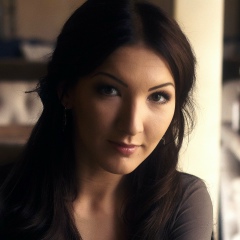#guardiansofthegalaxy2 #gotg2 #стражигалактики #marvel
Я подоспела на этот уходящий поезд! После Вавилона смотрелось особенно фантасмагорично - вчера ты разглядывал посредственные и нелепые модельки космических кораблей со странным отростками, а сегодня ты наблюдаешь слепящий глаза своим богатством cgi, от которого сложно оторвать глаз.
Кажется, что вторая часть стала ещё более... подростковой (хотя перед нами в очереди билеты отказались продавать подросткам), но в данном случае это смотрелось адекватно, потому как очень явно был сделан уклон в тему семьи, отцовства, принадлежности и поиска родных душ. Неплохо раскрыли тему single dad (в отношении Йонду и Квилла и в рамках отношения малыша Грута и команды) ; ещё лучше слепили образ родителя, который в погоне за реализацией своих нездоровых мечтаний и подкармливания чсв, в буквальном смысле выпивает все соки из своего ребенка, используя его как инструмент достижения того, что не получилось самому; довольно мило остановились на отношениях Гаморы и Небулы, наделив их конфликт всеми атрибутами именно братской вражды.
Интересно , как часто сюжет овивался вокруг проблем, связанных с эмоциональным воспитанием персонажей, и как основной конфликт свёлся к некому моральныму выбору Квилла между - в прямом смысле - мозгом (как холодный рациональный расчёт) и сердцем (семья-дружба-понимание-любовь и тд). Добавив к этому аспекту сюжета то, как на самом деле часто Квилл плачет, мы получаем довольно симпатичный разворот для male driven narrative. Вероятно, притягательность персонажа таится как раз в балансе между выкрученным до максимума рычагом подросткового максимализма (или гиперактивной отвратительностью) и этой не менее подростковой наивной искренностью (мы хорошие - мы вас победим).
Возможно, есть определённый символизм в том, что Квилл отрицает свою 'исключительность' как персонаж => весьма агрессивно отказывается от статуса Мэри Сью в своей истории и - соответственно - выбирает равенство внутри своего коллектива.
Приятно порадовало, что романтическая линия все так же слаба и нерешительна, хотя ее наличие в этот раз и чётко обозначено. Очень надеюсь, что в будущем оно так и останется чем-то невысказанным, потому что обоим персонажам кажется ещё есть, куда развиваться и без этого. Тем более, что в этот раз Гамора менее подвержена 'мужскому взгляду' камеры. Представление Небулы на экране вообще очень порадовало - она такой максимально маскулинный персонаж без страха и упрёка. Божечки, они с Гаморой в этот раз даже не завалили тест Бехдель (что само по себе, конечно же, не делает фильм исключительным или хорошим).
Как всегда ностальгический ОСТ порадовал, тут и не было сомнений. Хотя иногда думалось, что похабность можно было бы оставить на уровне первой части, общий тон фильма был скорее милым и трогательным. Пусть новизна продукта уже осталась позади, общее чувство пафоса было перенесено с самих стражей на другие моменты, все же хочется узнать, а что там дальше.
Отдельный кудос за референс Хичкока.
Я подоспела на этот уходящий поезд! После Вавилона смотрелось особенно фантасмагорично - вчера ты разглядывал посредственные и нелепые модельки космических кораблей со странным отростками, а сегодня ты наблюдаешь слепящий глаза своим богатством cgi, от которого сложно оторвать глаз.
Кажется, что вторая часть стала ещё более... подростковой (хотя перед нами в очереди билеты отказались продавать подросткам), но в данном случае это смотрелось адекватно, потому как очень явно был сделан уклон в тему семьи, отцовства, принадлежности и поиска родных душ. Неплохо раскрыли тему single dad (в отношении Йонду и Квилла и в рамках отношения малыша Грута и команды) ; ещё лучше слепили образ родителя, который в погоне за реализацией своих нездоровых мечтаний и подкармливания чсв, в буквальном смысле выпивает все соки из своего ребенка, используя его как инструмент достижения того, что не получилось самому; довольно мило остановились на отношениях Гаморы и Небулы, наделив их конфликт всеми атрибутами именно братской вражды.
Интересно , как часто сюжет овивался вокруг проблем, связанных с эмоциональным воспитанием персонажей, и как основной конфликт свёлся к некому моральныму выбору Квилла между - в прямом смысле - мозгом (как холодный рациональный расчёт) и сердцем (семья-дружба-понимание-любовь и тд). Добавив к этому аспекту сюжета то, как на самом деле часто Квилл плачет, мы получаем довольно симпатичный разворот для male driven narrative. Вероятно, притягательность персонажа таится как раз в балансе между выкрученным до максимума рычагом подросткового максимализма (или гиперактивной отвратительностью) и этой не менее подростковой наивной искренностью (мы хорошие - мы вас победим).
Возможно, есть определённый символизм в том, что Квилл отрицает свою 'исключительность' как персонаж => весьма агрессивно отказывается от статуса Мэри Сью в своей истории и - соответственно - выбирает равенство внутри своего коллектива.
Приятно порадовало, что романтическая линия все так же слаба и нерешительна, хотя ее наличие в этот раз и чётко обозначено. Очень надеюсь, что в будущем оно так и останется чем-то невысказанным, потому что обоим персонажам кажется ещё есть, куда развиваться и без этого. Тем более, что в этот раз Гамора менее подвержена 'мужскому взгляду' камеры. Представление Небулы на экране вообще очень порадовало - она такой максимально маскулинный персонаж без страха и упрёка. Божечки, они с Гаморой в этот раз даже не завалили тест Бехдель (что само по себе, конечно же, не делает фильм исключительным или хорошим).
Как всегда ностальгический ОСТ порадовал, тут и не было сомнений. Хотя иногда думалось, что похабность можно было бы оставить на уровне первой части, общий тон фильма был скорее милым и трогательным. Пусть новизна продукта уже осталась позади, общее чувство пафоса было перенесено с самих стражей на другие моменты, все же хочется узнать, а что там дальше.
Отдельный кудос за референс Хичкока.
#guardiansofthegalaxy2 # gotg2 #guardia galaxy #marvel
I arrived on this outgoing train! After Babylon, it looked especially phantasmagoric - yesterday you looked at mediocre and ridiculous models of spaceships with strange processes, and today you observe blinding eyes with your wealth of cgi, from which it is difficult to take your eyes off.
It seems that the second part has become even more ... teenage (although before us in the queue we refused to sell tickets to teenagers), but in this case it looked adequate, because a bias was clearly made in the theme of family, fatherhood, belonging and the search for soul mates . Not bad disclosed the theme of single dad (in relation to Yondou and Quill and in the framework of the relationship between baby Groot and the team); they even better dazzled the image of a parent who, in the pursuit of fulfilling his unhealthy dreams and feeding his family, literally drinks all the juices from his child, using it as a tool to achieve what did not work out for himself; pretty sweetly settled on the relations of Gamora and Nebula, endowing their conflict with all the attributes of just fraternal hostility.
It is interesting how often the plot hovered around the problems associated with the emotional upbringing of the characters, and how the main conflict boiled down to Quill's moral choice between - in the literal sense - the brain (as a cold rational calculation) and the heart (family-friendship-understanding-love, etc. ) Adding to this aspect of the plot, how often Quill cries, we get a pretty nice U-turn for male driven narrative. Probably, the character’s attractiveness lurks just in the balance between the lever of teenage maximalism (or hyperactive disgust) twisted to the maximum and this no less teenage naive sincerity (we are good - we will defeat you).
Perhaps there is a certain symbolism in the fact that Quill denies his “exclusivity” as a character => very aggressively refuses Mary Sue's status in her story and - accordingly - chooses equality within her team.
It was pleasantly pleased that the romantic line is still weak and indecisive, although its presence this time is clearly marked. I really hope that in the future it will remain something unspoken, because it seems to both characters that there is still room for development without it. Moreover, this time Gamora is less prone to the 'masculine gaze' of the camera. The presentation of Nebula on the screen was generally very pleased - she is such a maximally masculine character without fear and reproach. Gods, he and Gamora did not even fail the Behdel test this time (which in itself, of course, does not make the film exceptional or good).
As always, the nostalgic OST pleased, there was no doubt. Although it was sometimes thought that obscenity could be left at the level of the first part, the overall tone of the film was rather sweet and touching. Let the novelty of the product already be left behind, the general feeling of pathos was transferred from the guards themselves to other moments, but I still want to know what is next.
Separate kudos for Hitchcock's reference.
I arrived on this outgoing train! After Babylon, it looked especially phantasmagoric - yesterday you looked at mediocre and ridiculous models of spaceships with strange processes, and today you observe blinding eyes with your wealth of cgi, from which it is difficult to take your eyes off.
It seems that the second part has become even more ... teenage (although before us in the queue we refused to sell tickets to teenagers), but in this case it looked adequate, because a bias was clearly made in the theme of family, fatherhood, belonging and the search for soul mates . Not bad disclosed the theme of single dad (in relation to Yondou and Quill and in the framework of the relationship between baby Groot and the team); they even better dazzled the image of a parent who, in the pursuit of fulfilling his unhealthy dreams and feeding his family, literally drinks all the juices from his child, using it as a tool to achieve what did not work out for himself; pretty sweetly settled on the relations of Gamora and Nebula, endowing their conflict with all the attributes of just fraternal hostility.
It is interesting how often the plot hovered around the problems associated with the emotional upbringing of the characters, and how the main conflict boiled down to Quill's moral choice between - in the literal sense - the brain (as a cold rational calculation) and the heart (family-friendship-understanding-love, etc. ) Adding to this aspect of the plot, how often Quill cries, we get a pretty nice U-turn for male driven narrative. Probably, the character’s attractiveness lurks just in the balance between the lever of teenage maximalism (or hyperactive disgust) twisted to the maximum and this no less teenage naive sincerity (we are good - we will defeat you).
Perhaps there is a certain symbolism in the fact that Quill denies his “exclusivity” as a character => very aggressively refuses Mary Sue's status in her story and - accordingly - chooses equality within her team.
It was pleasantly pleased that the romantic line is still weak and indecisive, although its presence this time is clearly marked. I really hope that in the future it will remain something unspoken, because it seems to both characters that there is still room for development without it. Moreover, this time Gamora is less prone to the 'masculine gaze' of the camera. The presentation of Nebula on the screen was generally very pleased - she is such a maximally masculine character without fear and reproach. Gods, he and Gamora did not even fail the Behdel test this time (which in itself, of course, does not make the film exceptional or good).
As always, the nostalgic OST pleased, there was no doubt. Although it was sometimes thought that obscenity could be left at the level of the first part, the overall tone of the film was rather sweet and touching. Let the novelty of the product already be left behind, the general feeling of pathos was transferred from the guards themselves to other moments, but I still want to know what is next.
Separate kudos for Hitchcock's reference.

У записи 1 лайков,
0 репостов,
227 просмотров.
0 репостов,
227 просмотров.
Эту запись оставил(а) на своей стене Дарья Семенова




















